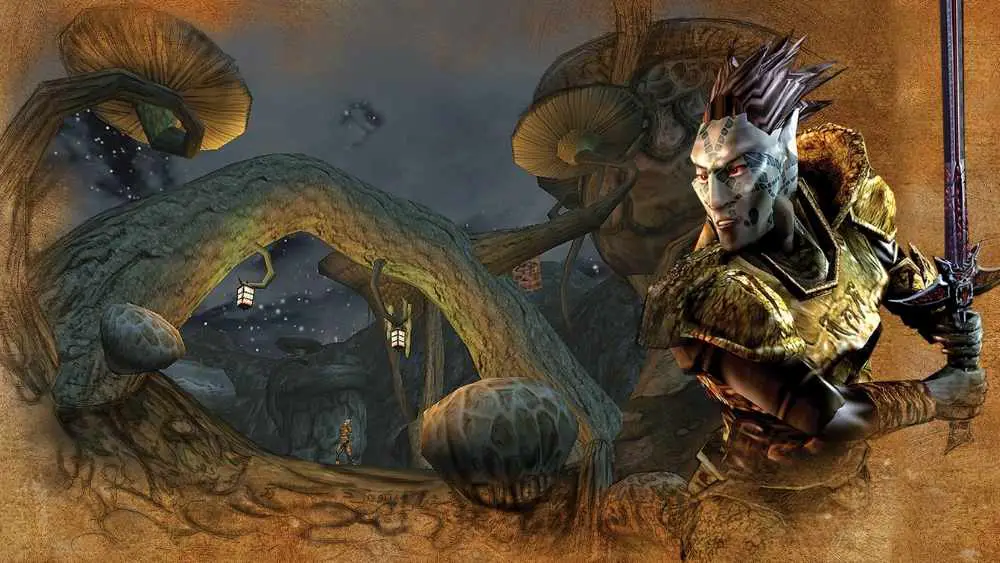The Elder Scrolls III: Morrowind, in my personal opinion, is the last innovative idea Bethesda had. Gamers could make an argument that subsequent titles were down-grades in every aspect except graphics.
The first-ever Elder Scrolls I played was Skyrim, and I was blown away by it. It seemed ahead of any RPG at the time; after Skyrim, I decided to take to other TES titles, and after Oblivion, I finally picked up Morrowind. Although a TES title; games like Morrowind are not a common occurrence
Morrowind is unlike any other TES, aesthetically and gameplay-wise. The world seems alien. There are giant monsters that sit on the city’s edge, providing fast travel to the player.
Related Read: Is Elder Scrolls Online a Pay-to-Win Game?
The Telvanni people are a society that has mastered magic; they don’t live in traditional houses but instead live inside trees as they fly up and down inside their own homes.
And, of course, there is the Red Mountain sitting on the middle of the map, with a forcefield around it blowing a sandstorm across the lands of Morrowind.
Today’s photorealistic standards might make Morrowind look dated but consider the ideas put forward for a 2002 release. For example, Morrowind had no obtrusive quest markers.
If the player had to travel to a new city, they’d have to use the roads and rely on road signs instead of jumping against a mountain, hoping to cut downtime like Skyrim.
Another great example would be the magic system, say the player gets hold of 2 different spells. One is absorbing mana, and the other is damaging hp; players can fuse these two spells any way they prefer, so they could choose to absorb HP or destroy mana by creating their own custom spells with their magnitude and duration.
Creating OP spells is pretty standard in Morrowind, but the player also needs to have the proper stats to cast the spell successfully. Without spoiling much Morrowind, magic makes you feel like a God in Tamriel, a feeling that was impossible to reciprocate in the newer titles.
Hell, you can fly in the game. You can make an OP magic spell that disarms your opponent, destroys their armour and debuffs their strength and intelligence to 0.
This quite literally means your opponent cannot do anything now; they have no strength to fight you or intelligence to cast magic at you.
Alternatively, my favourite spell increases the weight on my opponent so much that they immediately become over-encumbered and cannot even walk up to me to hit me.
What I have described here is only a glimpse into the possibilities the game allows you to dabble in.
So without further ado, let’s explore other games like Morrowind that allow freedom and encourage players to come up with their own solutions.
1. Fallout New Vegas
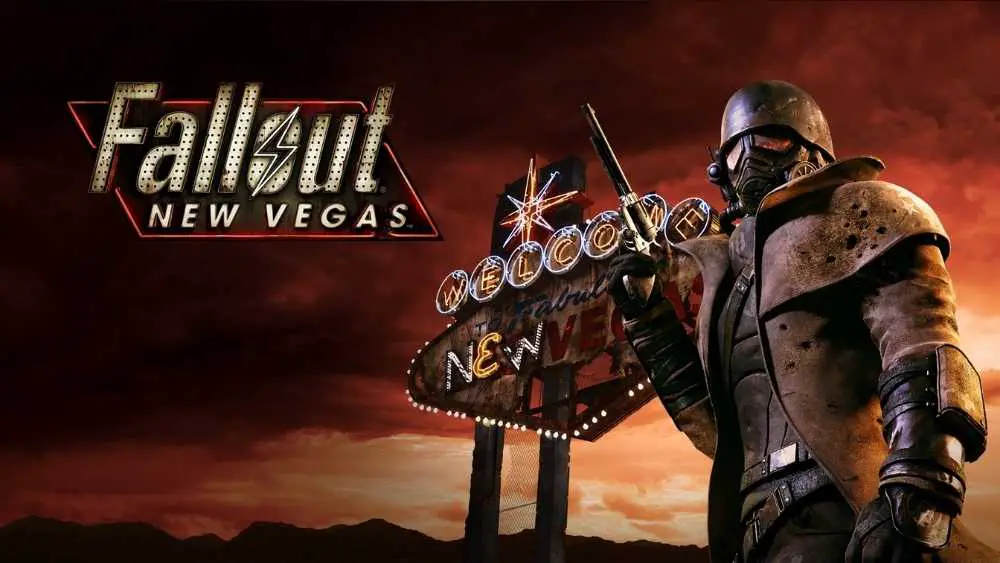
New Vegas is my favourite Fallout, and it’s probably because Obsidian and not Bethesda made it. The game starts in a typical RPG fashion of something drastic happening to your character that one could say the next day would be life anew for them – Getting shot in the head and buried by the game’s antagonist before your rescue by a kindly old gentleman who even gives you a G.O.A.T test.
Releasing after Fallout 3 and surpassing it, many consider Fallout: New Vegas to be the definitive Fallout experience. I agree.
While, Fallout: NV doesn’t have the freedom and depth found in the Morrowind magic system, it features its slew of upgrades to Fallout 3’s mechanics. The biggest one is the refinement of the upgrade system; instead of giving you many perk points per level up, it makes it more challenging for the player to become overtly powerful in every game aspect. Thus they decide to give fewer perk points per level, and traits are also fewer and farther in between; this makes replayability enjoyable because players can now actually roleplay and be good at one thing instead of everything like other Bethesda RPGs.
My favourite mechanic was how your stats directly affect speech with people; for example, if the player wishes to buy explosives but doesn’t have any skill points invested in the stats, no sane man would sell the player explosives. Which makes sense the player is a novice and might cause harm to themselves and others while handling something so dangerous.
Fallout: New Vegas is a 3-D Fallout done right. Bethesda has lost its touch; in my opinion, they like to play it safe instead of innovating. To put it simply, I find Fallout: New Vegas more appealing and satisfying to play than Fallout 4.
2. Prey (2017)
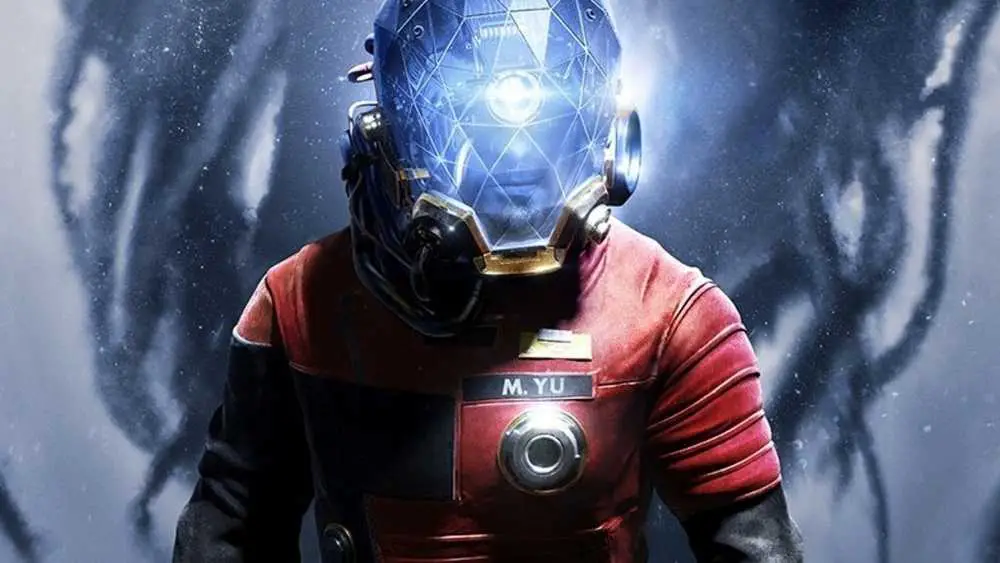
The fact that Prey wasn’t a success is a testament to the fact that how much a title can alienate a player base. The original Prey was released in 2006 to critical and commercial success. It was, for all intents and purposes, a doom-like, linear, first-person shooter. A sequel was announced that stayed in development for what seemed to me like a decade before the entire project was canned.
Prey 2017 was nothing like the original one. The newer title was an immersive-sim RPG rather than a linear shooter affair. This was confusing for gamers, especially Prey fans like me, who were begging for a sequel for a long time. But, according to the developer, they weren’t even trying to make a sequel to Prey; what they had in mind was a spiritual successor to System Shock 2. Of course, Bethesda, being Bethesda, probably wanted to use the Prey IP they had acquired a long time ago and shoe-horned it, which ironically didn’t help the game sales.
Prey is an immersive sim, which means that the player can overcome the game’s obstacles any way they wish. Unsurprisingly, The game has a lot of options in terms of upgrades. The game’s story even ties into what decisions you made in your upgrades; using too many alien mods will inadvertently make the systems created to protect human beings from said aliens target the player, misidentifying them to be the alien threat.
Prey would have been a more well-known title if its name was not so misleading, however as time has passed, more RPG fans have realized about this hidden gem. The game is slowly gaining recognition for its masterful design both graphically and mechanically. Who knows, maybe someday Bethesda will announce System Shock 3, just to confuse the players who liked Prey (2017).
3. Deus Ex
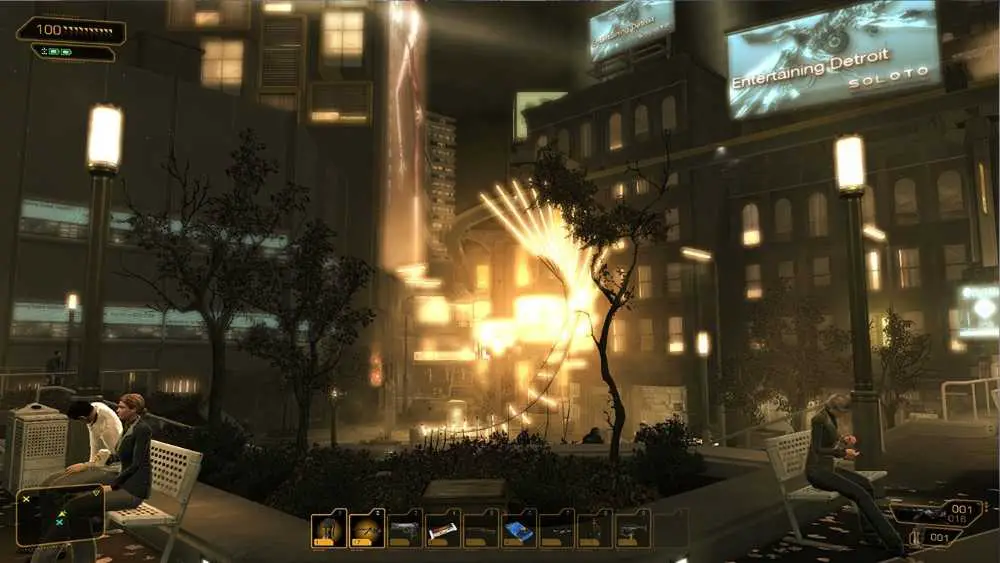
Deus Ex is often regarded as the best game ever made. While those feelings don’t resonate with me, I can understand where they come from. Deus Ex sees the player in a dystopian corporation controlled future as they work their way around a mystery and an overarching theme of conspiracy and questions of morality. Deus Ex certainly is a very mature title in terms of its themes, even asking questions like what it means to be God and so on. It came out at a different time and can be credited for being the first game to have depth and seriousness to tackle mature themes.
Gameplay-wise, Deus Ex is another immersive sim that follows the same structure of throwing the players in a playground and giving them a puzzle to work around. You can go guns blazing; you can go quiet as a mouse or knock everyone out with melee attacks. It’s left entirely up to you how you choose to beat a level. Although gamers might find the graphics and mechanics very dated (as they are), a slight adjustment is all it takes to enjoy this fine piece of the game that is, to this day, 21 years later, still called by many – The best video game ever made.
4. System Shock 2
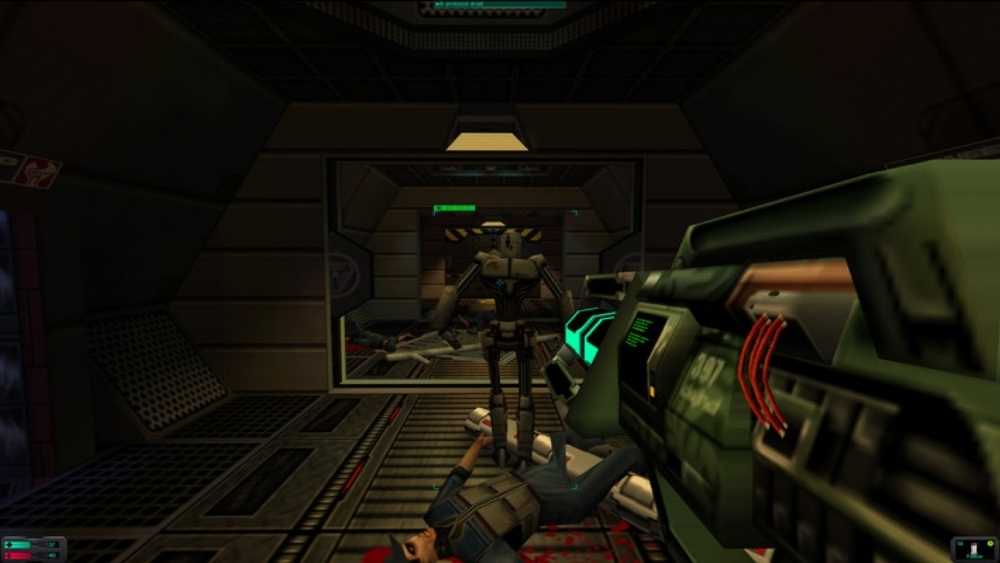
SS2 is another immersive sim akin to Prey than Deus Ex, although arguably all 3 of them are from the same genre. SS2 does the same things as immersive sims above. However, it doesn’t belong to the action genre; instead, it takes a more eerie and horror approach. The difference in atmosphere between SS2 and Prey is that of Alien and Aliens. While both have set out to do the same thing, that is, to survive in outer space, they both go around it very differently.
System Shock 2, because of its horror approach, demands more tension in the atmosphere, and while it may look dated from today’s standards, it still manages to give me the spooks. Honestly, I think its dated aesthetics weirdly add to the horror and atmosphere. Kind of like how I find zombies from older Resident Evils scarier than those in Resident Evil 6; it might be the inhuman animations or just the groans they make. Still, they make me uneasy and add to the tension when trying to find my way around the isolated spaceship or just trying to hack a terminal.
5. S.T.A.L.K.E.R
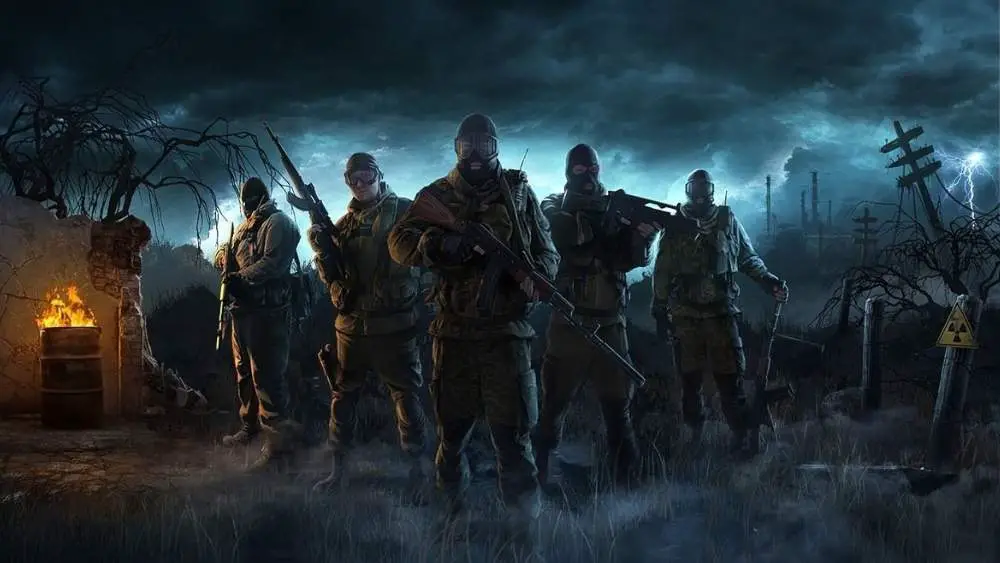
Stalker is hands down my favourite RPG ever made. I have a perhaps unfounded disdain for linear games. I’m not too fond that my experience is not unique as everyone who has played a linear game follows the same basic path fighting the same enemies using the same abilities. Player choice is irrelevant, even if the game fools you into thinking you did have a choice. For example, at the end of Far Cry 3, players are given two options. Choosing either option only changes the ending that will play out nothing more. Instead of assessing what choice the player would organically decide through their actions throughout the game and what they prioritized, it’s left to the simple push of the left stick to determine how the game would end. Such games make me feel like the world revolves around the character. But when comparing games to Morrowind, we should look for the exact opposite, a world that wouldn’t stop if the player character stopped existing.
Stalker does exactly that; the world is not going to wait for you. More importantly, it will carry on without you. As bleak as that sounds, it brings in a sense of realism to the game. I have often been just walking around in Stalker collecting anomalies when I come across a pack of rabid dogs trying to kill a person; if I save the person, there’s no special reward for me. The person is not going to come up to me and give me half his gold. That’s unrealistic. Stalker stands for Scavengers, Trespassers, Adventurers, Loners, Killers, Explorers, Robbers. Everyone is trying to survive, including you, and you are nothing special. You are not a chosen one who once visited the Emperor in his dreams or got called on by the greybeards. No, you are the marked one, nothing more. But of course, you could be more, without the help of the game telling you, you are unique, the player can get better loot, weapons, and anomalies to be a god-tier character and still when the character dies, the world keeps going on.
6. Gothic
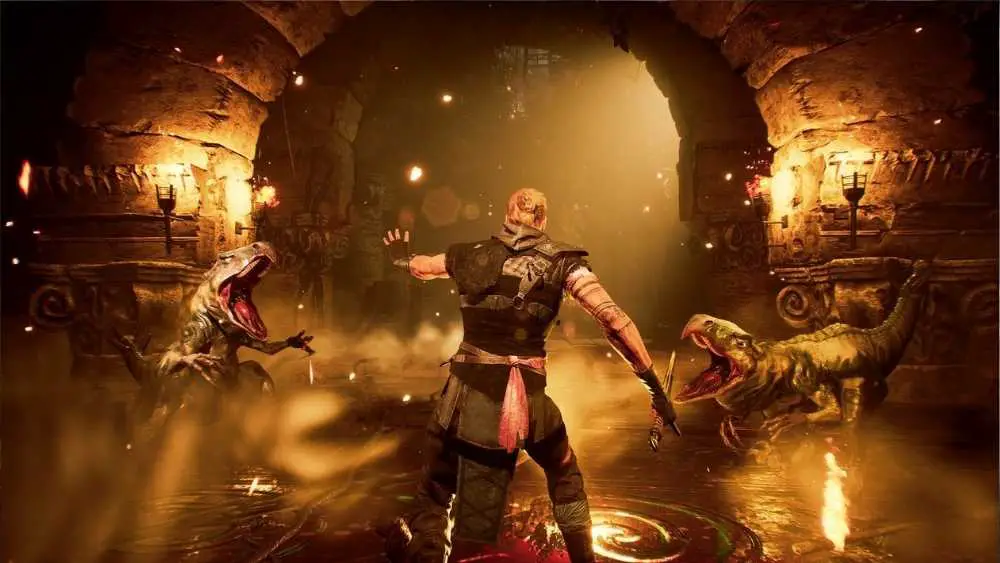
Contrary to popular belief, Gothic is older than Morrowind, but because of its publishing style, it never made it out of Europe until Morrowind was kicking and screaming its way to everyone’s computers. I wonder how they’d have compared to each other at the time if they were on an equal footing. But then again, Gothic was a relatively unknown name compared to TES, which already had a fan following.
Where Gothic might deter players from the game is its control scheme, It relies heavily on using combinations with the control key rather than using separate keys. Thus, for example, if you wish to perform an action (which is generally E or F), the players have to press the forward key and control key simultaneously.
Gothic is similar to many older RPGs; you start as a squishy character unable to damage anything and bring one-hit-kill by almost any critter in the world. At the beginning of the game, a guard was shaking me down for protection money. When I refused to pay, some thugs noticed and wrapped me into a scheme which ended with me being hit over the head and them taking all of my possessions. That’s Gothic, you’re not special, but understanding game mechanics and getting better at them, you could be.
7. Kenshi
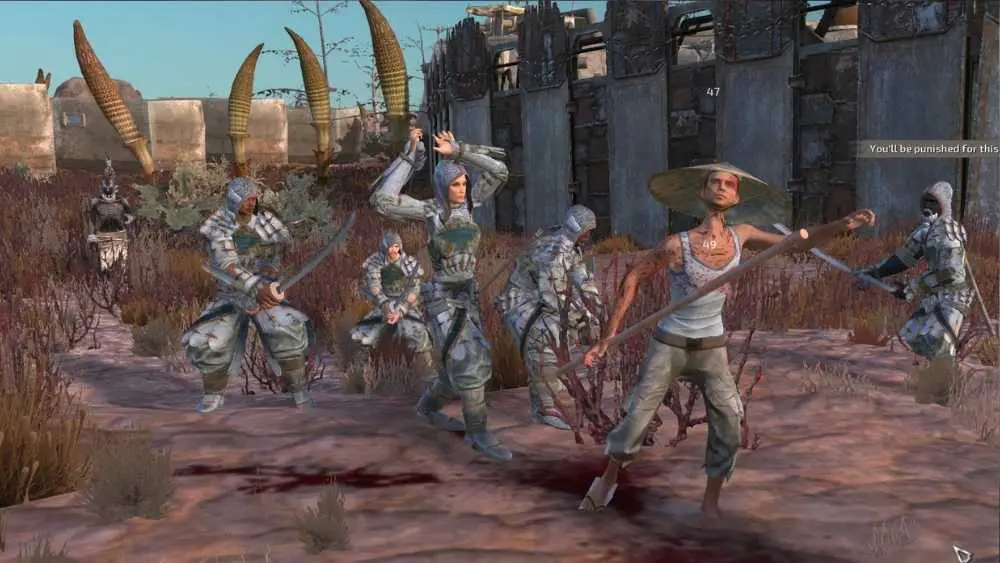
Kenshi is a title that many people haven’t heard of; it’s been an early access title since 2013 and was released only a year prior (to the best of my memory). Kenshi is perhaps the most ambitious title on the entire list. It’s a sandbox-style RPG that can turn into an RTS game if you are not into the whole lone wolf thing. This game feels like the weird alchemic mix of a standard RPG with loot and crafting mechanics but also has RTS mechanics embedded in its roots as you hire companions. You can control them individually like your own character or even give them commands in an Age of Empire-esque manner.
Different factions inhabit a varied landscape, each having its own cultures, traditions and objectives, but that’s not it. You can build your very own city if you choose to; that is the amount of liberty this game offers.
However, don’t be fooled into thinking this game is a cakewalk. It’s anything but easy. Everything walking around the world either wants to kill you or, worse, enslave you, which is a nice touch for people who cannot play games without being handed quest markers and objectives.
Kenshi is the game I won’t recommend to anyone who has never experienced the liberty of immersive sims or games like Morrowind. Still, I’d highly recommend it to the more seasoned player willing to grind out the time and learn the mechanics of a game to beat it.
Having high standards for how good a game looks is a sure-fire way to miss all these classics; Morrowind, System Shock and Deus Ex are all games with numerous possibilities and ways to solve a problem, a gameplay style that is rarely ever replicated. I might be the only one but I find greater satisfaction in overcoming an obstacle that was hinted to me organically through the world, rather than a glowing quest marker and an obstructing HUD that holds your hand just short of not pressing the keys on your keyboard.
Want to find out similar suggestions for other games as well? Visit our Games Like hub.

